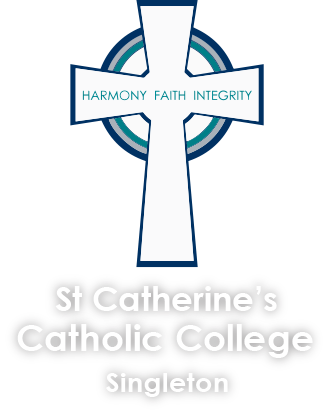
Students from Kindergarten to Year 6 are part of the primary department of the College. All students receive instruction in all Key Learning Areas. For more information, click on the areas below:
The English syllabus has three strands – Speaking and Listening, Reading and Viewing and Writing and Representing. The following extract from the syllabus outlines the focus of English lessons:
“In the years of schooling from Kindergarten to Year 10, English is the study and use of the English language in its various textual forms. These encompass spoken, written and visual texts of varying complexity through which meaning is shaped, conveyed, interpreted and reflected. The study of English from Kindergarten to Year 10 should develop a love of literature and learning and be challenging and enjoyable. It develops skills to enable students to experiment with ideas and expression, to become active, independent and lifelong learners, to work with each other and to reflect on their learning.”
All teachers at St Catherine’s are teaching from the new NSW Curriculum in English.
The Mathematics syllabus is organised into the following strands – Number and Algebra, Statistics/Probability, Measurement/Geometry and the process of Working Mathematically which underpins all strands.
Students will “have the opportunity to develop an appreciation of mathematics and its application in their everyday lives and in the world of science, technology, commerce, the arts and employment” (Syllabus). Many of the activities associated with Mathematics, particularly in the early years, involve a ‘hands on’ approach.
All teachers at St Catherine’s are implementing the new NSW Curriculum in Mathematics.
The Religion Syllabus has four strands that apply to Kindergarten to Year 10, these are – Jesus and Scripture, History and Beliefs, Celebration and Prayer and Justice and Morality. The following extract from the syllabus explains the focus for each Stage.
Kindergarten
Students are focused on themselves, their family and immediate world. They relate their own experiences to ideas, events and information.
Years 1 and 2
Students have a natural curiosity, a sense of wonder and enthusiasm for fantasy and play. They mix with others in a more complex way and friendships become increasingly important. They are growing in self-awareness and beginning to make choices and decisions. Learning is generally through direct experience.
Years 3 and 4
Students are more aware of belonging to the wider community. The peer group becomes increasingly important and they also see fairness as a core moral principle. They are absorbed in collecting and organising information and can see the relationship between ideas and information. They are able to interpret and communicate ideas more proficiently.
Years 5 and 6
Students have a deeper awareness of the wider world and its impact on their lives. They are more self-motivated and able to absorb a considerable amount of information. They have a more sophisticated sense of reasoning and a greater understanding of consequences. Peers have a significant influence on their values and judgements.
Science and Technology develops students’ skills in thinking, investigating and problem solving. It gives them knowledge and skills in scientific investigation, design and applied technology. This subject builds on the curiosity students have about their natural and built environments.
“The study of Science and Technology enables students to develop a positive self-concept as learners as well as confidence in and gain enjoyment from their learning. They become self-motivated learners through active participation in challenging and engaging experiences in order to develop innovative solutions” (Science Syllabus).
All teachers at St Catherine’s are teaching from the new NSW Curriculum for Science.
HSIE History – The study of History from Kindergarten to Year 10 investigates the actions, motives and lifestyles of people over time, from individuals and family members, to local communities, expanding to national and world history contexts. Through investigation, students develop knowledge and understanding about the nature of history, key changes and developments from the past, key historical concepts and they develop the skills to undertake the process of historical inquiry.
HSIE Geography – The study of Geography enables students to become active, responsible and informed citizens able to evaluate the opinions of others and express their own ideas and arguments. Through investigation and focusing on geographical skills and tools, students learn about people, places and environments.
The Creative Arts K-6 and the Years 7-10 syllabus provides information about teaching and learning in Visual Arts, Music, Drama and Dance.
The aim of the PDHPE syllabus is to develop in each student the knowledge and understanding, skills and values and attitudes to lead healthy, active and fulfilling lives. It is based on “the notion of health that encompasses all aspects of an individual’s wellbeing, inclusive of social, mental, physical and spiritual health” (Syllabus).
There are eight strands in the PDHPE Syllabus – Active Lifestyle, Dance, Games and Sports, Growth and Development, Gymnastics, Interpersonal Relationships, Personal Health Choices and Safe Living.